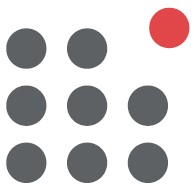- Get directions
- Leave a review
- Claim listing
- Bookmark
- Share
- Report
- prev
- next
- Wednesday, July 31, 2019 @ 12:00 am
Founders of Microcaps and OxyPrem win the highest level of Venture Kick support, CHF 130,000, with technologies that deliver active ingredients such as probiotics at industrial scale, and offer practical, re-useable devices that will reduce death and brain-damage in preterm babies.
Microcaps allow fast, precise, monodisperse microencapsulation on an industrial scale
Until now the microencapsulation technology widely used in pharmaceuticals, food and fragrances, was a trade-off between speed and precision. Controlling particle size, crucial for the stability and controlled-release of active ingredients, was slow. Microcaps’ patented device solves this and will allow fast, precise, monodisperse microencapsulation on an industrial scale. The ETH spinoff's novel, microfluidic technology wraps microscopic compounds 1,000-times faster than the current-state-of-the art, while also ensuring particle size control from 10 to 2,000 μm in a range of materials.
Founders Alessandro Ofner and Michael Hagander have already won customers in each of the food, pharma and cosmetic segments of this $12 billion market, which is growing at 14 percent every year. Microcaps used prior Venture Kick support and training to find customers, triple the number of staff and file patents around their technology.
The founders have vivid memories of the entrepreneurial training at their Kicker's Camps: "Beat and Jordi are so valuable. Their training is the most-important reality check, it really opens your eyes and they help bring your startup to another level," said Hagander. "The camps helped us move from being scientists to entrepreneurs – it's a complete mind shift," added Ofner.
Microcaps will concentrate on increasing sales through 2019, before a Series A fundraising round planned for the second-half of next year.
OxyPrem: Developing a non-invasive device to prevent oxygen starvation in preterm babies
A million preterm babies die each year, and many more of those surviving early birth suffer brain damage related to oxygen starvation. OxyPrem is developing a non-invasive device to help prevent this by measuring brain oxygenation continuously, and alerting medical staff when levels breach normal ranges.
Founders Alexander Nitsch, Daniel Ostojic, Martin Wolf, and chief engineer and UZH Entrepreneur Fellow Stefan Kleiser have filed four patent applications around their silicone-based device that measures brain oxygenation more reliably than current technology. The team, which has conducted in- vivo and in-vitro trials and published four peer-reviewed papers with the University Hospital Zurich, are confident that their device's unmatched precision, cost-effectiveness and handling sets it apart.
"Neonatal care clinicians and purchasing managers tell us they want a higher-quality device that can be re-used, instead of low-quality, disposable sensors that end up being worse for babies and more expensive for hospitals," said Nitsch.
Supported by the Wyss Zurich and the Uniscientia Foundation, OxyPrem is working with key opinion leaders in 12 European countries within the SafeBoosC-III trial, which is currently assessing the benefits of brain-monitoring in a group of 1,600 extremely preterm infants. Alongside follow-ups with clinicians, OxyPrem will obtain medical device certification and will start screening for viable industry partners in the near future.
